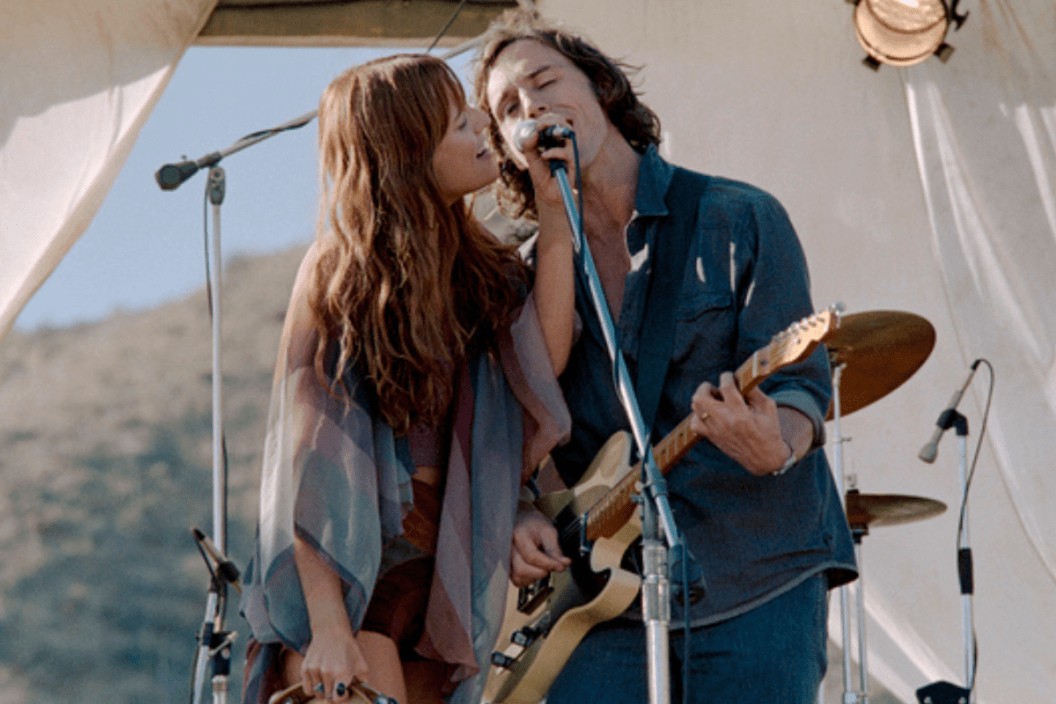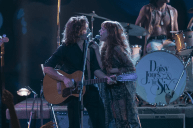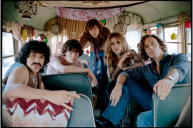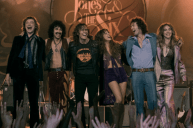The titular subject of the Prime Video series Daisy Jones & the Six may be a fictional band, but, in many ways, that's where the fantasy ends. Even the book it's based on, the Taylor Jenkins Reid novel of the same name, is written as an oral history of a group of legendary '70s rockers that mysteriously broke up at the height of their fame; it feels instantly familiar, especially to anyone who spent countless afternoons watching endless streams of VH1 Behind the Music episodes.
Videos by Wide Open Country
Series creators Scott Neustadter and Michael H. Weber, who also serve as executive producers, alongside Reese Witherspoon and Lauren Neustadter, and Reid, who serves as a producer, are adept at world-building, taking viewers back in time and along for the ride with a band on the verge of world domination. The series is steeped in L.A. history, with venues such as Filthy McNasty's (now called The Viper Room) serving as important landmarks on the band's journey to stardom. Then there's Aurora, a full-length album produced by Blake Mills and featuring contributions from folk rock legend Jackson Browne, Marcus Mumford and Madison Cunningham, which serves as Daisy Jones & the Six's answer to Fleetwood Mac's Rumours and recently hit No. 1 on iTunes.
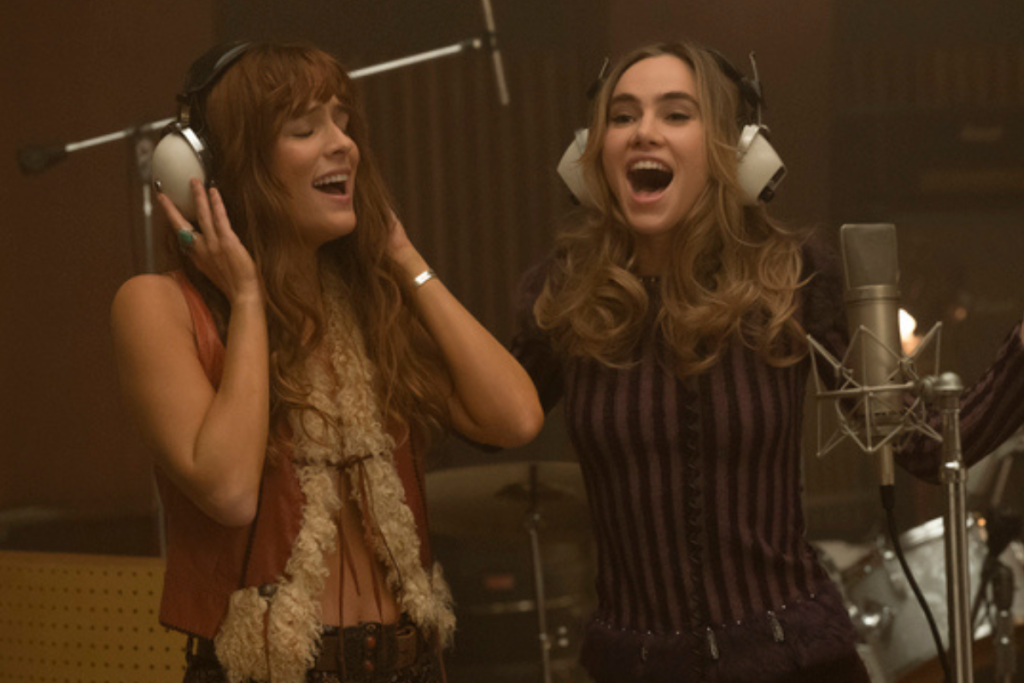
Lacey Terrell/ Prime Video
The success of the series, and the band's real life chart-topping album for that matter, is due in no small part to the fact that the cast that makes up Daisy Jones & the Six -- Riley Keough, Sam Claflin, Suki Waterhouse, Will Harrison, Sebastian Chacon and Josh Whitehouse -- lived and worked as a real band -- not just onscreen, but also through two years of rehearsals with real life L.A. musicians Malcolm McRae and Kane Ritchotte of the band More.
What began as a whirlwind month where they were tasked with learning their instruments, turned into a two year rock camp after production was delayed due to COVID. Though several members of the cast had prior musical experience (Suki Waterhouse is a singer-songwriter who released her Sub Pop debut I Can't Let Go last year), learning how to play together as a real band proved to be key -- both onscreen and off.
Wide Open Country caught up with McRae and Ritchotte, who worked as music coaches on the show and also portray the decidedly less successful band The Winters on the series, to talk about taking a time machine back to the '70s, the beauty of collaboration and helping to turn a fictional group into a real life bonafide rock band.
This interview has been edited for length and clarity.
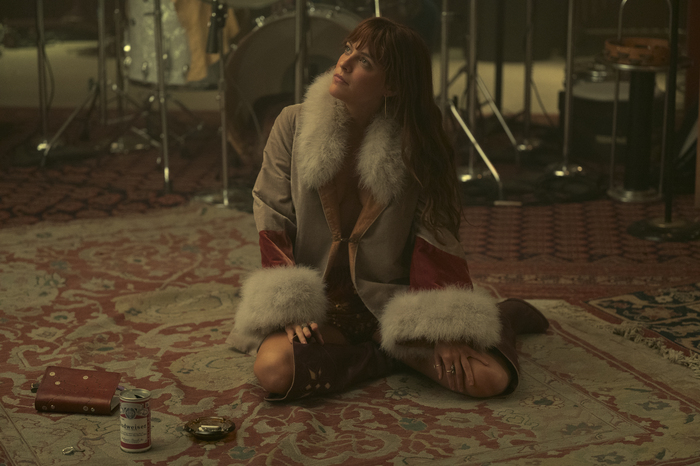
Lacey Terrell/ Prime Video
Kane Ritchotte: I don't think either of us really knew about it until the project came around, but the first thing we both did was read the book and we quickly became fans of the project.
Malcolm McRae: We were working with Tony Berg [the producing partner of Blake Mills, who created the music for the series] and he put us up to audition for the show. So we went in for various roles several times, and then none of us got it.
Kane Ritchotte: They were too smart. They were wiser than that. [laughs]
WOC: How did you go about working with the cast in terms of teaching instrumentation and musicianship?
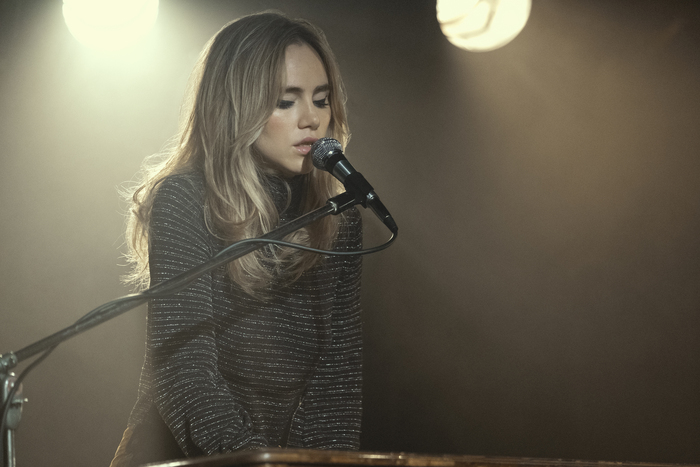
Suki Waterhouse in "Daisy Jones & The Six"/ Lacey Terrell/ Prime Video
MM: Kane was there from the very beginning as a drum coach. Then it sort of became this blended -- all of us would teach everybody, because at a certain point everybody was in the same room playing the song. I think you can't feign musicianship. Initially they had about a month to learn their instruments and that was just going to be an impossibility. Then COVID happened and they had about two years.
WOC: Were you involved for the whole two years of the process?
Kane: Yeah, the thing was that the music was developing as well, so we were kind of going back and forth because we worked on a little bit of the recording of the music as well with Blake [Mills] and Tony [Berg]....There's this rehearsal space across the street from where we were recording where the actors could be rehearsing their songs... So we would just hop back and forth. Not only were some of the actors not experienced, the music was also very difficult.... But we ended up with two years of time due to COVID. That ended up being the thing that afforded everybody the time to really learn everything. By the end of it, the whole cast could go and play a live show.
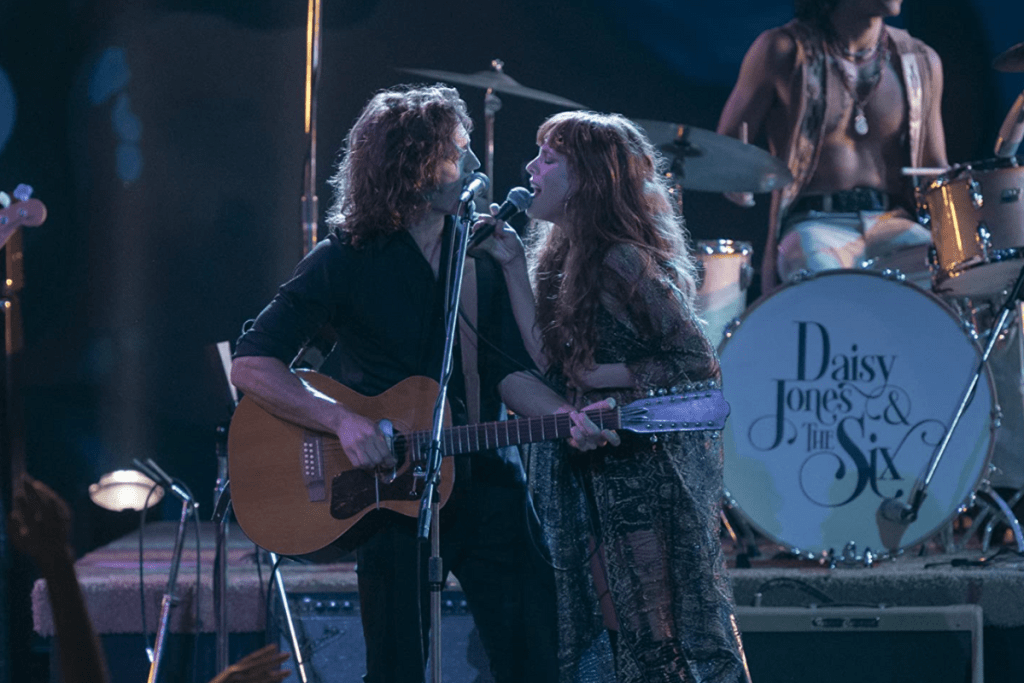
LACEY TERRELL/Lacey Terrell/Prime Vide
Malcolm: I think it's really difficult if you think about it. That's a really scary thing for an actor to do, especially one who doesn't have any background in music, you know? The musician being thrust into the role of an actor and you don't really know how to go about it. We're also musicians, so we're notoriously not too organized and not too pragmatic. Maybe that was helpful to learn from actual musicians. Sometimes there's something that happens on sets where you can have a vocal coach or something and you're learning scales and you're not actually being able to apply any of that to what's going on.... [For this project] it was mainly learning the songs and trying to be as genuine as possible with the instrument.
WOC: I know that some of the cast had musical experience already -- were there any cast members who discovered a musical talent or interest they didn't realize before the project?
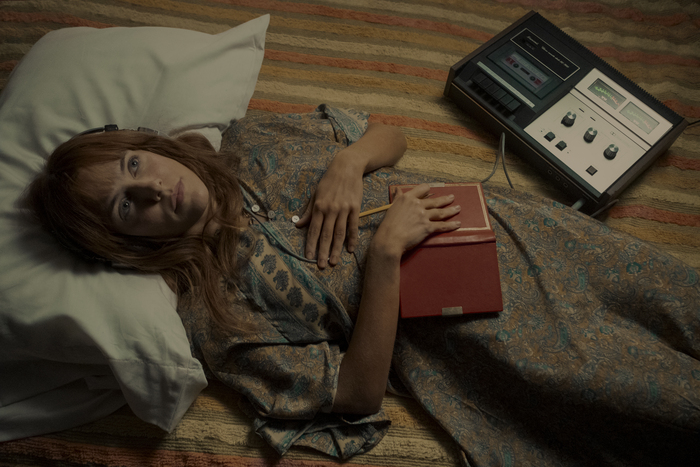
Riley Keough in "Daisy Jones & The Six." Lacey Terrell/ Prime Video
KR: There was a lot of growth kind of across the board, even with Suki [Waterhouse], who is a musician -- she's a songwriter and singer -- but I don't think she had much experience as a piano player or keyboard player. She did such a great job. I'd say I think the most profound discovery was in Riley [Keough]'s journey, because obviously she comes from a musical family. I've known her for years. She's never sung before, at least in front of anybody. But she had such a natural gift for it. She was kind of brilliant immediately.
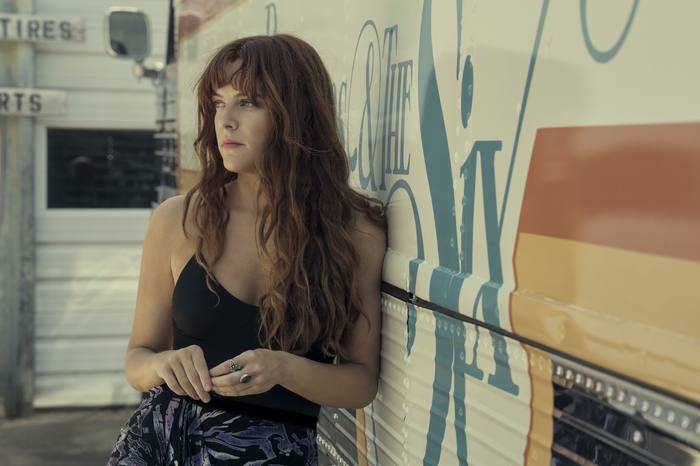
Lacey Terrell/ Prime Video
MM: I do think it was Riley and Sam Claflin, both of who intuitively knew how to do it, but it was a crisis of confidence initially for them. Because maybe a few of their friends are musicians, they were afraid to say, like, 'oh yes, I can sing.' ... The main thing about singing is that it's an egotistical pursuit. So you have to believe that you should be heard -- especially for characters like Billy Dunne and Daisy. Daisy definitely does. They had to figure out how to implement that and they did wonderfully.
WOC: In addition to your roles working with the cast, you're also in a real band and living in L.A. -- do you see any parallels between your own journey and the Six when you were on set?
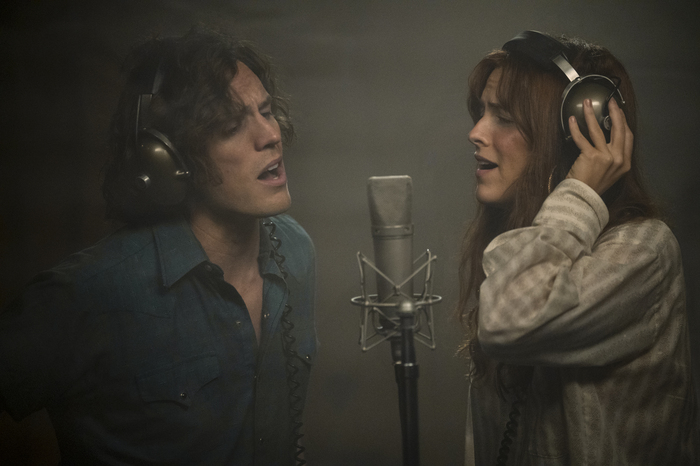
Sam Claflin and Riley Keough in "Daisy Jones & The Six." Lacey Terrell/ Prime Video
MM: Yes, except ours is called the Two. There's a lot less romance. [laughs]
KR: There's always these parallels. I think a lot of it has become trope like in the way that it's portrayed in film and TV, with the exception being Daisy Jones. I think that it's more grounded in reality. Also, in the era in which it takes place -- what have now become tropes were very much kind of more typical...But there's always these themes... It's such an intimate collaboration that there's no way for it to be completely void of drama and turmoil. But we learned from those tropes to know what to avoid.
WOC: Did you have any conversations with the cast about your own experience of building camaraderie as a band?
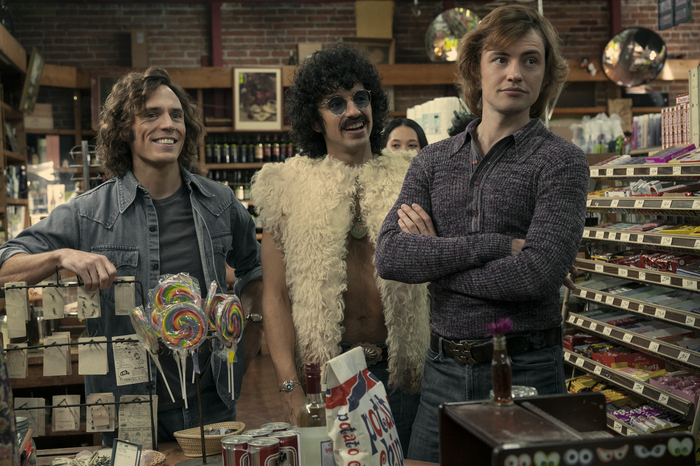
Sam Claflin, Sebastian Chacon and Will Harrison in "Daisy Jones & the Six." Lacey Terrell/ Prime Video
MM: Typically in film and television, the way music is portrayed is that there's some some genius who controls it all. I feel that in actuality, the best acts -- there's a lot of collaboration. The fact that it's the whole sum of the parts greater than the one. So I think that's maybe the biggest difference. But other than that, no. I am personally still on a journey of learning how to play music and I think it's a lifelong pursuit. That's what's fun about it.
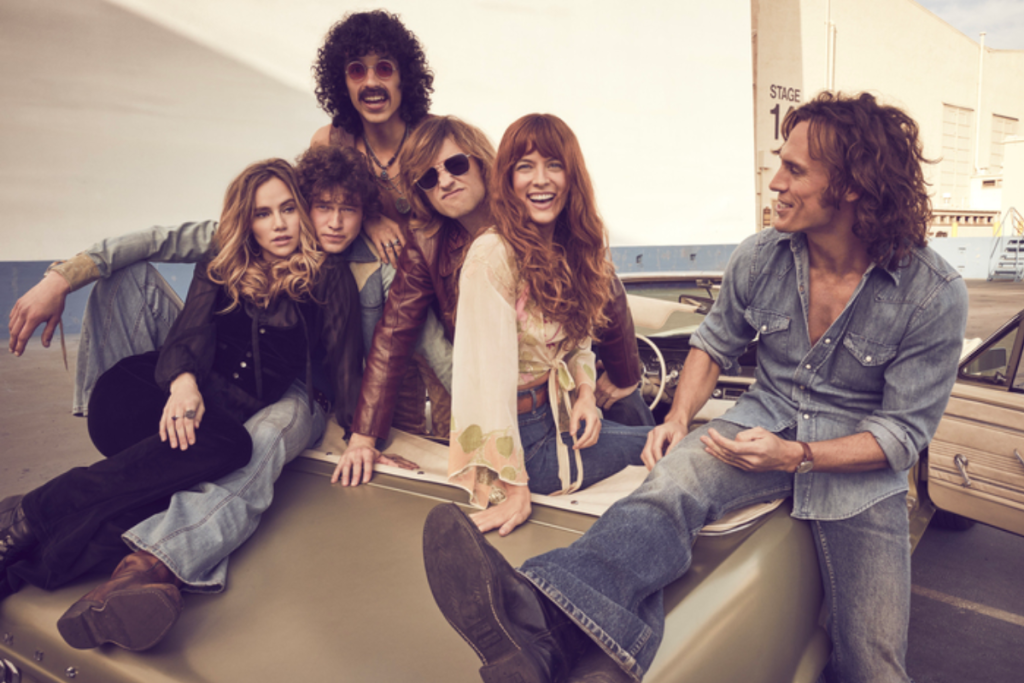
Prime Video
WOC: As fans of '60s and '70s pop rock, what it was like to experience that era on set? Did it kind of feel like going back in time?
The other really cool set experience was they actually shot the studio footage in the show at Sound City because Sound City existed [back then]. That was actually the heyday of Sound City, back in the '70s. It's changed a lot, the aesthetic of it and the way it's built has changed since the heyday. But they redid it exactly like it used to be. We've recorded there for years and we've done our albums there and Daisy Jones stuff there. So it was really cool to get to kind of walk into it when it was designed the way it was in the '70s. It was unrecognizable. The whole layout was different.
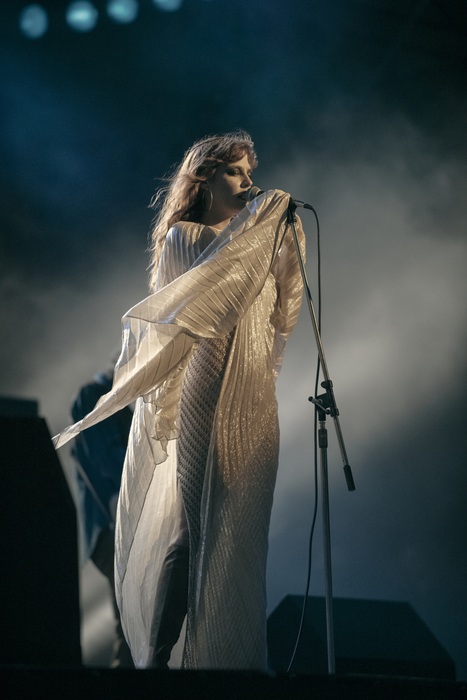
Lacey Terrell/ Prime Video
WOC: Do you have a favorite memory from set or just something that you consider your favorite part of the experience of working on the show?
KR:
We were there through the whole cast casting process as well.... They were very specific about what they wanted [for] very specific roles. Everybody checked so many boxes....Blake [Mills] had sung everything as he was writing... He was just singing the songs to demonstrate what they would be. The first time I heard the recordings with the actors singing them, having replaced Blake, that was a really cool, exciting moment.
Daisy Jones & the Six is currently streaming on Prime Video. New episodes drop each Friday.
